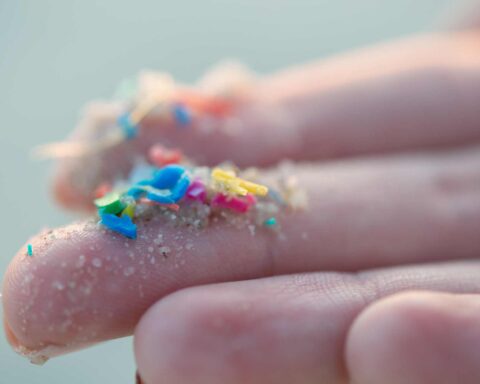Alcohol consumption driven by anxiety has been rising rapidly among women in recent years, a worrying trend made worse by the pandemic. At the same time, alcohol companies continue targeting marketing at women, subtly promoting drinking as an escape from daily stresses. Looking closer at research and data reveals complex reasons behind this stress drinking among women and its implications.
"Alcohol became the modern tranquilizer, offered as an antidote for stress," says Holly Whitaker, a former Silicon Valley executive and author of Quit Like a Woman. She describes past struggles with alcohol abuse, drawing parallels to historical sedatives like Valium and Miltown. Back then, these were prescribed to women for anxiety before addiction issues emerged.
Statistics are alarming. Despite higher male alcoholism deaths, hospitalizations are rising faster among women. In the past year, “heavy drinking days” jumped 41% for women but only 7% for men. This began pre-pandemic.
Surprisingly, women in high-income and education brackets tend to drink more. Though more comfortable financially, they also face expectations to succeed at work, parent perfectly, and maintain standards - pressures causing serious stress.
"Studies consistently show women use alcohol to cope with stress and emotions," says Julie Patock-Peckham, a psychology professor at Arizona State University. Her recent research found pandemic stress specifically led to more drinking among women.
In Patock-Peckham's study, men and women underwent stressors and then had open bar access. Just the stress was enough for women to drink significantly more, even without prior alcohol. This highlights women's heightened stress-drinking sensitivity.
Initially, alcohol reduces overthinking and worry, offering relaxation. But as sobering occurs, anxiety chemicals rebound, actually worsening stress. It's like a "happiness loan" - temporary respite repaid with more significant anxiety later.
Ann Dowsett Johnston, author of Drink: The Intimate Relationship Between Women and Alcohol, reflects on using alcohol to transition from demanding work to domestic duties. She observes a perfectionism pattern in women, numbing resultant depression and anxiety with evening alcohol.
This stress drinking is especially hazardous given alcohol's health risks for women. Processing differences make them prone to organ damage, cancer, and other diseases from drinking. Government data shows young women drive rising alcohol-caused liver deaths, with each additional drink elevating breast cancer odds.
Historical parallels exist to 19th and 20th-century sedative and opiate prescribing for "female problems," marketed as tension cures before addiction issues emerged. Similarly, modern marketing insinuates alcohol helps women transition from work to domesticity.
“We should ease women’s lives, not their access to alcohol,” Whitaker argues, advocating universal childcare, better working conditions, and equal domestic division instead of drinking. Women could develop healthy coping mechanisms like exercise, meditation, and work-life balance.
In summary, alcohol may temporarily reduce anxiety but is not a true stress reliever. The real challenge is decreasing root causes driving women to self-medicate with alcohol, plus changing attitudes promoting drinking as a coping mechanism. Rather than wine, women need actual support and help.
Beyond marketing, social pressures also normalize alcohol use for women. Happy hours and "wine mom" memes glorify drinking to unwind. Such conditioning breeds unhealthy attitudes that alcohol is required to manage stress or fully enjoy leisure time.
Changing social perspectives is key but difficult with omnipresent media messaging tying alcohol to relaxation. "Women aren't anxious because they lack wine, they drink wine because they're anxious," Whitaker contends. "Let's dig deeper into the reasons why."
Examining and addressing those root causes - like lack of support, impossible expectations, work overload - would alleviate the need for alcohol as self-medication. But it requires confronting societal problems rather than numbing symptoms.
If women replaced drinking with meditation, exercise, or other techniques, they could build long-term resilience and mental health. Yoga, deep breathing, therapy, and art offer positive outlets. Self-care needs promotion as an empowering alternative to pouring a glass when pressure mounts.
Progress combating dangerous drinking requires effort from multiple angles: media, government, companies, community organizations, and individuals. But change is possible by increasing awareness and decreasing stigma. The goal is humane policies and attitudes that address why so many women feel compelled to drink excessively.

 Trump has begun another trade war. Here's a timeline of how we got here
Trump has begun another trade war. Here's a timeline of how we got here
 Canada's leader laments lost friendship with US in town that sheltered stranded Americans after 9/11
Canada's leader laments lost friendship with US in town that sheltered stranded Americans after 9/11
 Chinese EV giant BYD's fourth-quarter profit leaps 73%
Chinese EV giant BYD's fourth-quarter profit leaps 73%
 You're an American in another land? Prepare to talk about the why and how of Trump 2.0
You're an American in another land? Prepare to talk about the why and how of Trump 2.0
 Chalk talk: Star power, top teams and No. 5 seeds headline the women's March Madness Sweet 16
Chalk talk: Star power, top teams and No. 5 seeds headline the women's March Madness Sweet 16
 Purdue returns to Sweet 16 with 76-62 win over McNeese in March Madness
Purdue returns to Sweet 16 with 76-62 win over McNeese in March Madness








